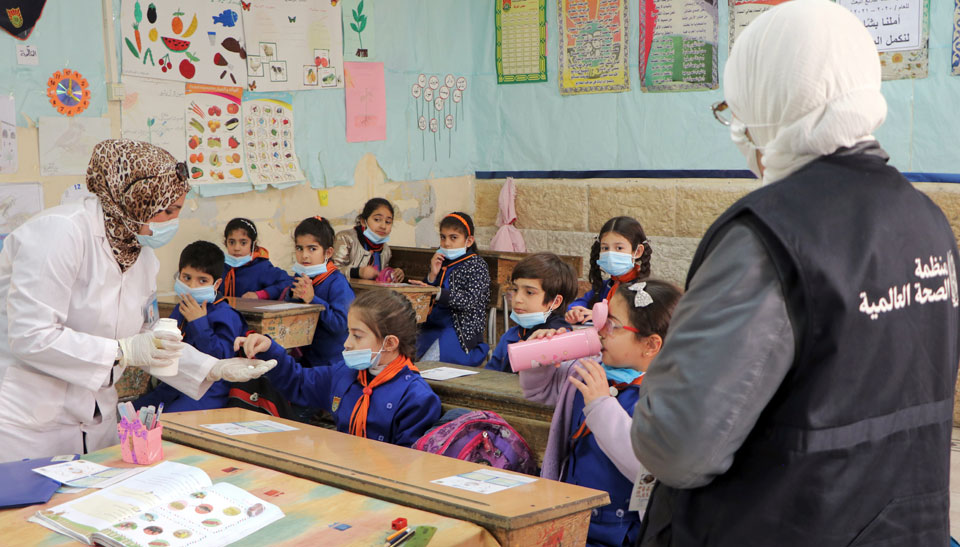
Reflection of Michael Atieh, WHO Syrian Arab Republic country office staff member
8 April 2021 - Children go running around playing with each other daily without a worry in mind. They play in the sand, dirt, mud and wherever else their imaginative young minds take them. However, consequences arise when improper sanitation is part of a child’s daily routine. Since these children are young and may not be attentive, they become the most likely victims of intestinal worms. These intestinal worms are transmitted by worm’s eggs present in human faeces, which in turn contaminate soil in areas where sanitation is poor. Consequently, we see intestinal worms affect severely impoverished and hygiene-deprived communities.
Intestinal worms can come in many different shapes and sizes and most commonly cause nausea, fatigue, restlessness, abdominal pain, and weight loss. As a result, if not treated immediately, it can have a devastating effect on a child’s future. Long-term consequences of intestinal worms include cognitive disabilities, anaemia, and growth impairment.
After 10 years of conflict, Syria has become a fertile land for intestinal worms to thrive. Poor sanitation has become the norm in many areas throughout the country, mainly due to either lack of proper water and sanitation infrastructure or lack of education on hygiene.
During the past five years, to fulfil its mandate to provide health services to all people in need, WHO, in close collaboration with the Ministry of Health and the Ministry of Education, has supported four soil-transmitted helminths deworming campaigns in Syria. This year’s four-week deworming campaign took place in March targeting 3 036 000 school children from all governorates.
The campaign revealed that the key concern for schools is water distribution. Since there is no clean water, the students cannot properly wash their hands after playing outside, thus creating a higher probability for transmission. The deworming medication provided to schoolchildren was very helpful. However other external factors causing the transmission of worms need to be further addressed.
WHO has played a vital role in eradicating intestinal worms. For over 70 years, thanks to WHO, numerous campaigns have been launched and several committees have been formed tackle to the issue. As a result, in 2001, WHO announced that 75% of school children in endemic areas were receiving deworming treatment. However, worms have not been completely eradicated, as they still affect over 2 billion people worldwide. The work preventing intestinal worms needs to continue.


